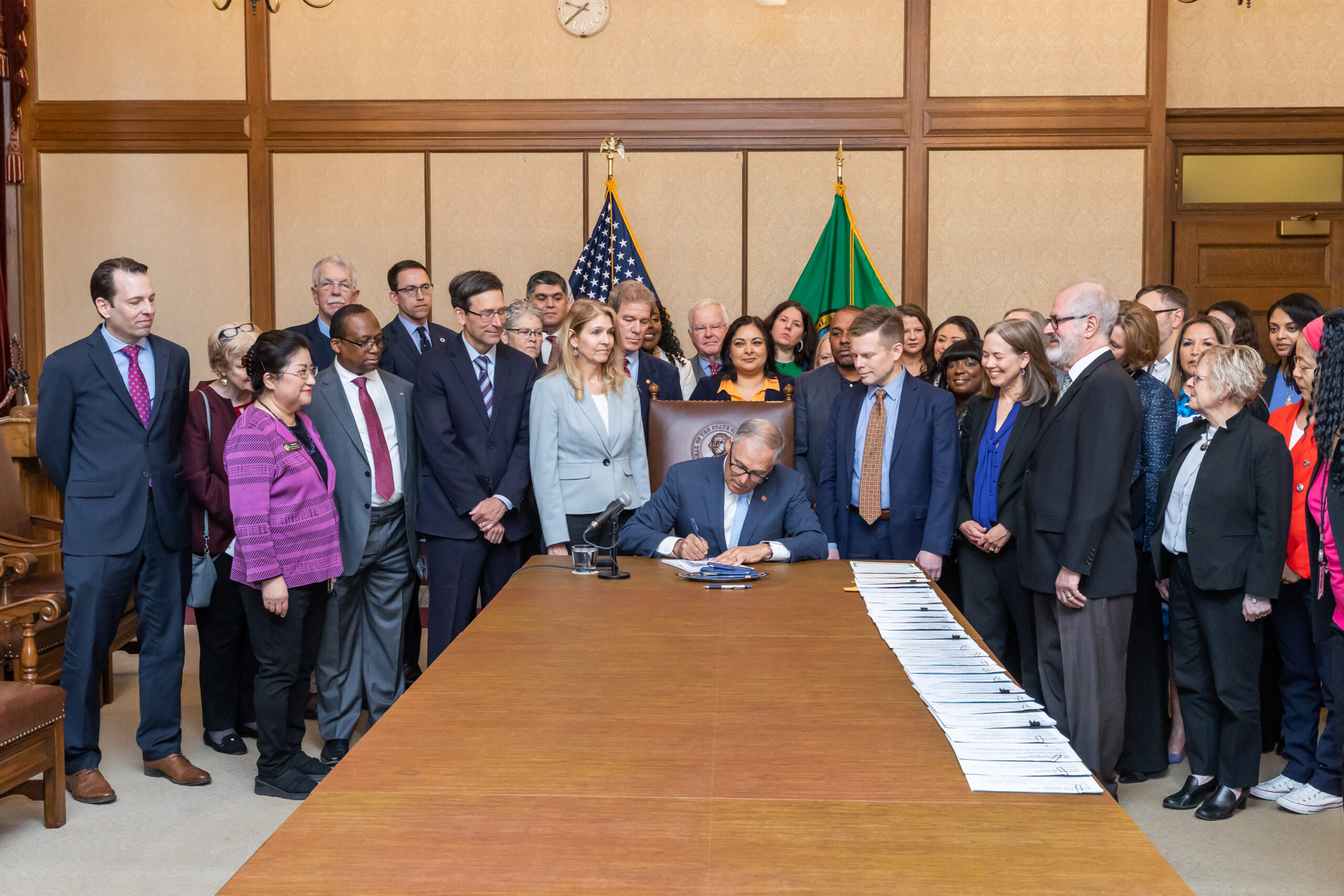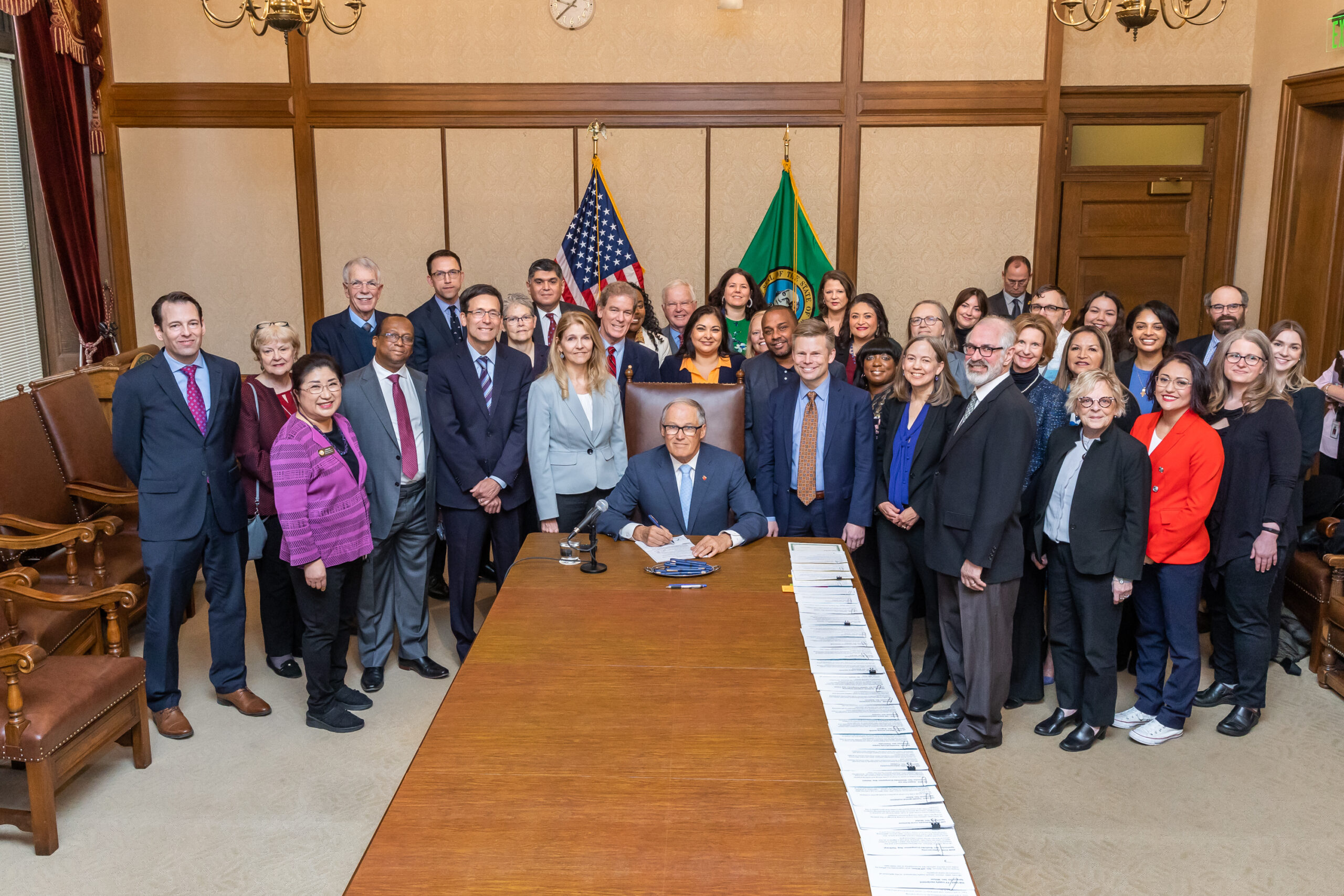Death penalty eliminated from Washington State statute
April 20, 2023 – After five years since the Washington Supreme Court ruled the death penalty as unconstitutional, Governor Inslee signed the bill this Thursday afternoon striking the death penalty language from state law.
“It’s official,” Inslee proclaims on Twitter. “The death penalty is no longer in state law. In 2014 I issued a moratorium. In 2018 the state Supreme Court deemed the death penalty unconstitutional. Now in 2023, passage of SB 5087 strikes it entirely from our statutes.”
Governor Inslee signs Substitute Senate Bill No. 5087, April 20, 2023. Relating to removing language from the Revised Code of Washington that has been identified by the justices of the supreme court or judges of the superior courts as defects and omissions in the laws pursuant to Article IV, section 25 of the Washington state Constitution.
Primary Sponsor: Sen. Pedersen
In 2018, Supreme Court ruled in the famous State v. Gregory case that Washington’s death penalty was unconstitutional. WAP Attorney Lila J. Silverstein and Attorney Neil Fox, both of whom represented Mr. Gregory on appeal, were invited to the signing of SB 5087.





